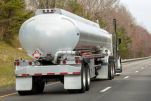REEFER

One of the most common trailers used is a reefer trailer. Used to
transport temperature-sensitive goods, reefer trailers are used
throughout the transportation industry for their various capabilities
Reefer trailers are used in the transport of goods that are
temperature-sensitive and/or perishable. This includes fresh products,
plants, pharmaceuticals, personal care products, seafood, dairy, meat,
fruits, vegetables, and more. In order to maintain the longevity and
integrity of these products, a refrigerated trailer is better equipped
to protect against spoilage and damage, and ensuring a stable consistent
temperature throughout the transport journey.
A refrigerated container has an impressive temperature range. The range
stretches -65˚c to 40˚c or -85˚f to 104˚f. This range makes reefer
trailers suitable for a wide range of temperature-sensitive cargo, from
fresh produce to hazardous chemicals and more.
A reefer trailer is also known as a refrigerated trailer. Primarily a
dry van, reefers are built with insulation and refrigeration
capabilities to optimize transport of perishable and
temperature-sensitive goods. While these goods aren't meant to be heated
or cooled, reefers are able to maintain a pre-set temperature. Normally
truckers invest in reefer trailers to eliminate product spoilage of
their loads.
Reefer trailers main components include a reefer unit, an insulated box,
reefer air chute, air ride suspension, and tire inflation system. Reefer
unit's important components include the engine, compressor, evaporator,
and condenser. Reefers are typically 53 ft long but are also available
in a variety of sizes.
One of the most important factors to consider for cold chain logistics
is remaining compliant with the FDA's regulations, including the Food
Safety Modernization Act (FSMA), implemented in 2017. These guidelines
seek to prevent foodborne illness, not simply respond to it. Before
purchasing a reefer, or booking a reefer trailer rental, check that the
trailer is suited for the types of cargo being transported.
Knowing which temperature category a shipment falls into will help to
choose the appropriate refer trailer for the job, avoiding the risk of
faulty shipments avoiding very costly mistakes.
